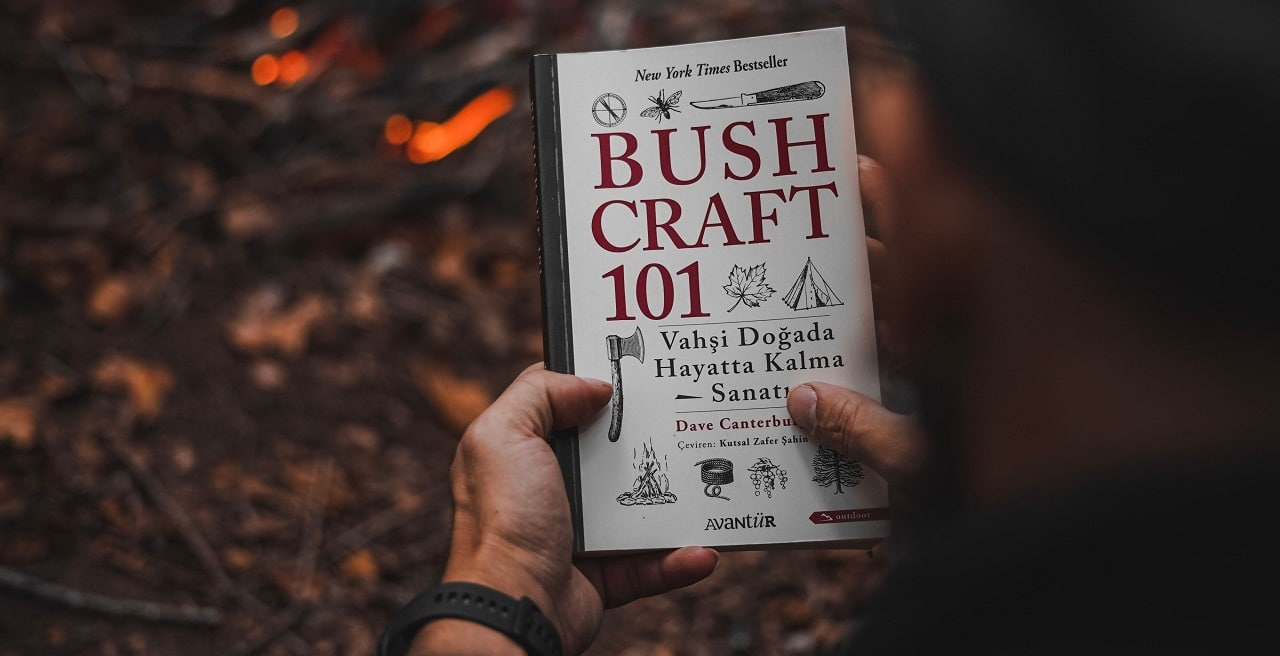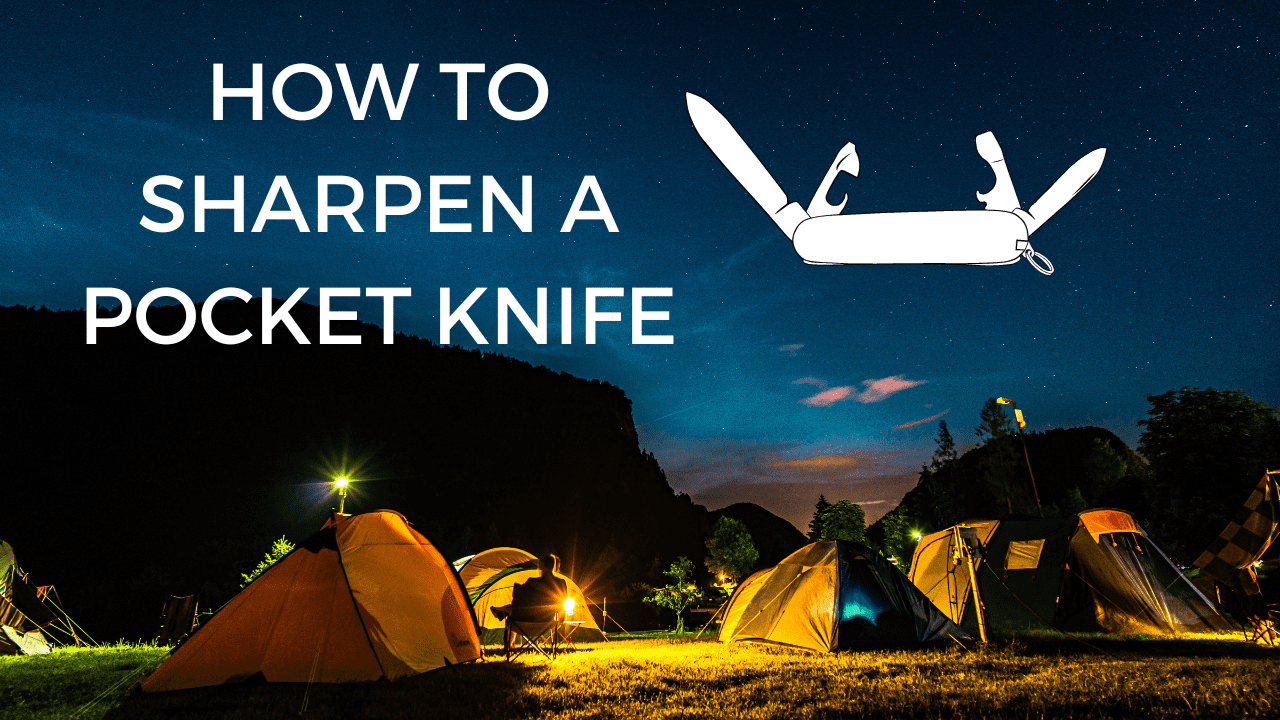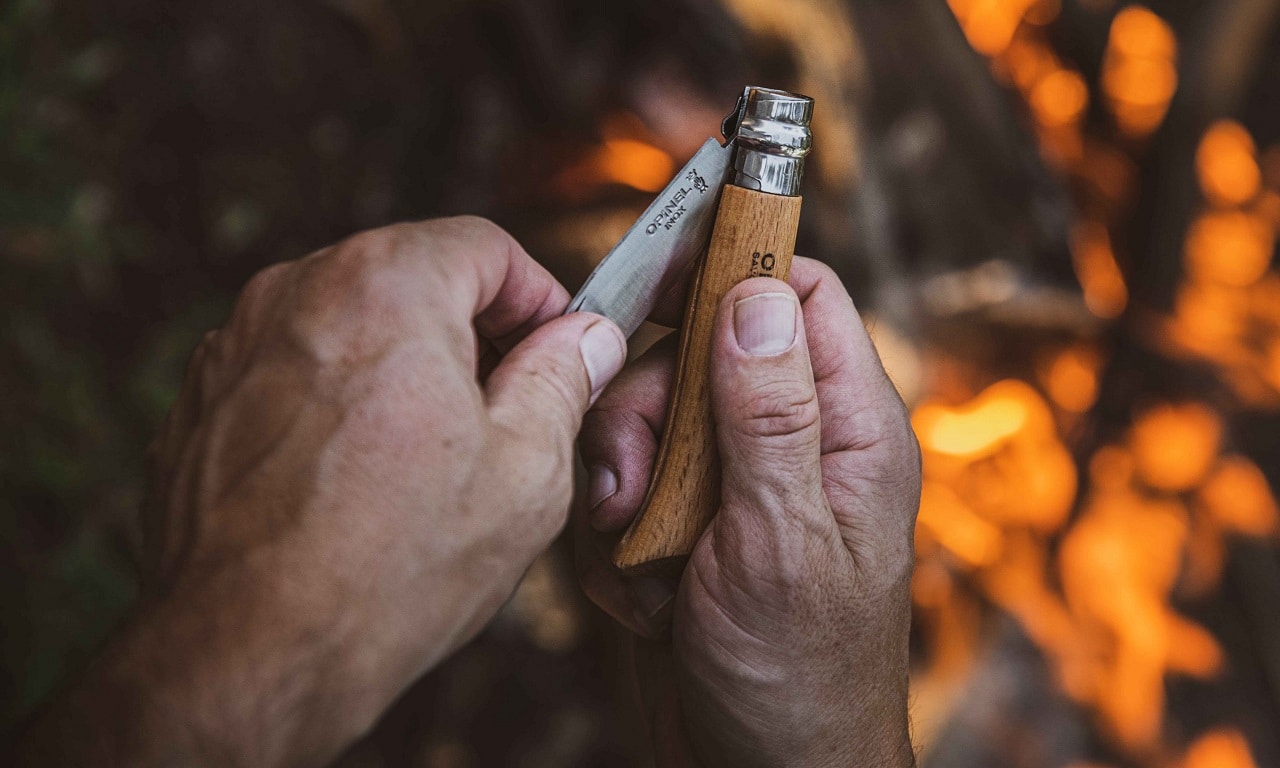Bushcraft, a timeless art that transcends time and modernity, offers a connection with nature, primal skills, and self-reliance. This exploration delves into the essence of this ancient skill set and its relevance in the contemporary world.
What is Bushcraft?
Bushcraft is fundamentally the art of using knowledge and expertise to survive in the wild. It includes a broad range of abilities and methods that enable people to live sensibly and sustainably in the wild. Bushcraft aims to promote long-term, peaceful living with nature, in contrast to survivalism, which frequently concentrates on short-term survival in emergencies.
The Pillars of Bushcraft
1. Firecraft: Mastering the Flame
Bushcraft is a survival skill that involves building and maintaining a fire, which provides warmth, cooking, and psychological comfort in the wilderness. Bushcraft enthusiasts learn various fire-starting techniques, from traditional friction methods to modern fire starters, ensuring they can kindle a flame even in adverse conditions.
2. Shelter Craft: Crafting a Home in the Wild
Surviving in the wilderness requires adequate shelter. Bushcraft practitioners excel in building makeshift shelters using natural materials like branches, leaves, and bark. Understanding the terrain and weather patterns is crucial for selecting an appropriate site for shelter construction.
3. Wilderness Navigation: Finding Your Way
Getting lost in the wild is a genuine concern, and bushcrafters hone their navigation skills using tools like maps, compasses, and celestial observations. Natural navigation techniques, such as reading the sun, stars, and landscape features, are vital components of bushcraft.
4. Water Sourcing and Purification: Nurturing Life
It is essential to have access to clean water in order to survive. Knowledgeable about boiling, filtering, and chemical treatments, bushcrafters know how to locate sources of water in the woods and can treat it accordingly..
5. Foraging and Plant Identification: Nature’s Grocery Store
Bushcraft involves a deep understanding of the local flora. Practitioners learn to identify edible plants, fungi, and berries, as well as those with medicinal properties. This knowledge allows them to sustain themselves with the abundance nature provides.
6. Toolcraft: Crafting Implements from Nature
In the absence of modern tools, bushcrafters rely on their ability to craft functional tools from natural materials. This includes fashioning knives, bows, and other implements from wood, bone, or stone.
The Philosophy of Bushcraft
Beyond the practical skills, bushcraft embodies a philosophy of self-reliance, minimalism, and environmental stewardship. It encourages individuals to connect with the land, appreciate the resources it provides, and tread lightly to minimize their impact.
Self-Reliance: Confidence in the Wild
Bushcraft fosters self-reliance by instilling confidence in individuals to meet their basic needs in the wilderness. This empowerment goes beyond practical skills; it’s a mental attitude that builds resilience and adaptability.
Minimalism: Thriving with Less
In a world often consumed by excess, bushcrafters appreciate the beauty of simplicity. Carrying only essential tools and relying on nature’s offerings, they find joy in thriving with less, fostering a deep connection with the environment.
Environmental Stewardship: Treading Lightly
Bushcraft teaches a profound respect for nature. Practitioners understand the delicate balance of ecosystems and strive to minimize their impact. Leave-no-trace principles are ingrained in the ethos of bushcraft, ensuring that the wilderness remains pristine for future generations.
Bushcraft in the Modern Age
In an era dominated by smartphones and instant gratification, the question arises: is bushcraft relevant today? The resounding answer is yes. As our lives become increasingly disconnected from nature, bushcraft offers a powerful antidote.
Connection with Nature: Rediscovering the Wild Within
Bushcraft provides an avenue for individuals to reconnect with the natural world. In a society where many spend their days in climate-controlled offices, the immersive experience of living in the wild, even temporarily, rekindles a primal connection that lies dormant within us.
Practical Preparedness: A Life Skill
While we may not all find ourselves lost in the wilderness, the skills imparted by bushcraft are undeniably practical. From basic survival knowledge to the satisfaction of crafting one’s tools, the lessons of bushcraft translate into valuable life skills.
Mindful Living: The Bushcraft Lifestyle
The philosophy of bushcraft extends beyond the woods. It inspires a mindful approach to daily life, encouraging individuals to appreciate the resources at hand, adopt sustainable practices, and cultivate a sense of gratitude for the natural world.
Embracing the Bushcraft Journey: Tips for Beginners
1. Begin with Basic Skills:
Start by mastering the fundamental skills. Learn to build a fire using different methods, practice setting up a simple shelter, and familiarize yourself with basic navigation techniques. Building a strong foundation in these skills will serve you well as you progress.
2. Invest in Quality Gear:
While the essence of bushcraft lies in minimalism, having reliable gear is crucial. Invest in quality tools such as a sturdy knife, a durable backpack, and a reliable multi-tool. These items will become your companions in the wild.
3. Learn from Experts:
Seek guidance from experienced bushcrafters. Join local workshops, attend outdoor survival courses, and connect with the community. Learning from those who have honed their skills through practical experience is invaluable.
4. Practice Leave-No-Trace Principles:
Respect for the environment is at the core of bushcraft. Practice leave-no-trace principles by minimizing your impact on the natural surroundings. Leave the wilderness as you found it, ensuring its beauty endures for others to enjoy.
5. Embrace the Mindset:
Learning skills is only one aspect of bushcraft; another is developing a mindset. Accept the values of independence, simplicity, and conservation of the environment in your everyday life as well as your outdoor pursuits.
Real-Life Stories: Bushcraft in Action
To truly understand the transformative power of bushcraft, let’s delve into real-life stories of individuals whose lives have been enriched by this ancient art.
1. The Urbanite Turned Bushcrafter:
Meet Sarah, a city-dweller who felt the pull of nature despite her fast-paced urban lifestyle. Seeking a change, she immersed herself in the world of bushcraft. Through learning primitive skills, she discovered a newfound appreciation for simplicity and self-reliance. Now, she balances her city job with regular escapes to the wilderness, where she finds solace and connection.
2. The Family Bonding in the Wild:
For the Johnson family, weekends are not spent in front of screens but immersed in nature. Parents Mike and Emily introduced their children to bushcraft as a way to foster family bonding and teach essential life skills. Together, they navigate the woods, build fires, and share stories under the stars. The Johnsons have found that bushcraft not only strengthens family ties but instills a deep love for the environment in their children.
3. From Novice to Expert: The Bushcraft Evolution:
John started his bushcraft journey as a novice, drawn to the idea of self-sufficiency in the wild. Through years of practice, he evolved from a beginner struggling to build a fire to an expert crafting his tools from natural materials. John’s story is a testament to the transformative nature of bushcraft, illustrating how dedication and a willingness to learn can lead to mastery.
Closing Thoughts: Beyond Survival to Thriving
In a world where technology often distances us from the natural world, bushcraft stands as a beacon, inviting us to rediscover the timeless wisdom inherent in the wilderness. Beyond its practical applications in survival situations, bushcraft offers a pathway to a more intentional, connected, and fulfilling life.
Remember that learning bushcraft is about living in balance with nature, not just about making it through survival in the wild. The abilities you develop, the perspective you take on, and the life experiences you have will enhance not just your outdoor encounters but also every aspect of your life.
So dive into the world of bushcraft, whether you’re an experienced outdoor enthusiast or just interested. Take on the challenge, relish the simplicity, and allow the wilderness’ wisdom to lead you on a path of self-awareness and reconnection with nature. Survival is only the first step in the art of bushcraft; the real enchantment comes in the journey.






Vibrómetro
Aparatos de ajuste: importante para el desempeño fluido y efectivo de las maquinarias.
En el campo de la ciencia avanzada, donde la productividad y la estabilidad del sistema son de suma significancia, los aparatos de ajuste juegan un función fundamental. Estos sistemas adaptados están concebidos para ajustar y fijar piezas rotativas, ya sea en equipamiento manufacturera, vehículos de movilidad o incluso en equipos caseros.
Para los especialistas en reparación de equipos y los ingenieros, manejar con equipos de balanceo es crucial para proteger el operación estable y seguro de cualquier sistema rotativo. Gracias a estas opciones avanzadas avanzadas, es posible limitar significativamente las sacudidas, el ruido y la presión sobre los rodamientos, prolongando la tiempo de servicio de partes valiosos.
De igual manera relevante es el papel que desempeñan los sistemas de equilibrado en la atención al cliente. El soporte experto y el reparación permanente utilizando estos equipos permiten dar soluciones de alta excelencia, mejorando la agrado de los compradores.
Para los responsables de proyectos, la aporte en unidades de equilibrado y sensores puede ser fundamental para mejorar la efectividad y eficiencia de sus dispositivos. Esto es principalmente importante para los dueños de negocios que administran pequeñas y medianas negocios, donde cada punto cuenta.
Por otro lado, los equipos de calibración tienen una extensa aplicación en el campo de la fiabilidad y el control de nivel. Permiten encontrar posibles fallos, previniendo reparaciones elevadas y averías a los sistemas. También, los indicadores recopilados de estos dispositivos pueden utilizarse para perfeccionar métodos y potenciar la reconocimiento en sistemas de exploración.
Las campos de utilización de los equipos de ajuste cubren múltiples áreas, desde la elaboración de vehículos de dos ruedas hasta el seguimiento ecológico. No afecta si se habla de importantes producciones de fábrica o modestos locales caseros, los equipos de ajuste son indispensables para asegurar un operación productivo y sin interrupciones.